The link between friends and mental health is a powerful and essential aspect of human relationships. The impact of friendships on mental well-being is profound, providing emotional support, reducing stress, and fostering a sense of belonging and acceptance.
Who Are Friends?
Friends are individuals who share a genuine and meaningful connection [mfn] Kitts, J. A., & Leal, D. F. (2021). What is(n’t) a friend? Dimensions of the friendship concept among adolescents. Social networks, 66, 161–170. https://doi.org/10.1016/j.socnet.2021.01.004 [/mfn] with each other. They are people who care about one another, trust each other, and support each other in both good times and bad.
Friends can come from various backgrounds, ages, and cultures. They can be schoolmates, colleagues, neighbors, or people met through hobbies and interests. The defining factor of a friend is the mutual bond and positive regard between individuals.
What Is Friendship?
Friendship is a social relationship [mfn] Dunbar R. I. M. (2018). The Anatomy of Friendship. Trends in cognitive sciences, 22(1), 32–51. https://doi.org/10.1016/j.tics.2017.10.004 [/mfn] that goes beyond mere acquaintance. It involves a deep sense of camaraderie, understanding, and empathy between individuals. True friendship is characterized by qualities such as trust, loyalty, honesty, and the ability to communicate openly without fear of judgment.
Read More About Empathy Here
Friends share common interests, values, and experiences, and they often enjoy spending time together. Moreover, friendship is a two-way street where both parties contribute to the relationship’s growth and well-being.
Why Are Friends Important For Mental Well-being?
Friends and mental health are intricately related [mfn] Cleary, M., Lees, D., & Sayers, J. (2018). Friendship and Mental Health. Issues in mental health nursing, 39(3), 279–281. https://doi.org/10.1080/01612840.2018.1431444 [/mfn] , as they provide:
- Emotional support during tough times
- Stress relief through enjoyable activities
- Opportunities to boost mood and well-being
- A sense of belonging and acceptance
- Advice, feedback, and support for developing healthy coping strategies
- Ways to combat loneliness and social isolation
- Avenues for improved self-expression and emotional regulation
- Opportunities for personal growth and development
Read More About Loneliness Here
Psychological Benefits Of Friendship
Research [mfn] Amati, V., Meggiolaro, S., Rivellini, G., & Zaccarin, S. (2018). Social relations and life satisfaction: the role of friends. Genus, 74(1), 7. https://doi.org/10.1186/s41118-018-0032-z [/mfn] attributes the psychological benefits of friendship to the following:
- Reduced Mental Health Risks: Friends lower risks of depression, anxiety, and loneliness.
- Enhanced Mood: Positive interactions boost emotional well-being.
- Improved Focus: Friends provide motivation and support for better focus and productivity.
- Stress Reduction: Supportive friends act as natural stress relievers.
- Greater Resilience: Friendship enhances resilience during tough times.
- Boosted Self-Esteem: Acceptance and belonging increase self-esteem.
- Social Connection: Friendships reduce loneliness and isolation.
- Better Communication Skills: Regular interactions improve communication.
- Effective Coping: Friends offer valuable advice for healthier coping strategies.
- Improved Health and Longevity: Strong friendships are linked to better physical health and longevity.
Read More About Self-Esteem Here
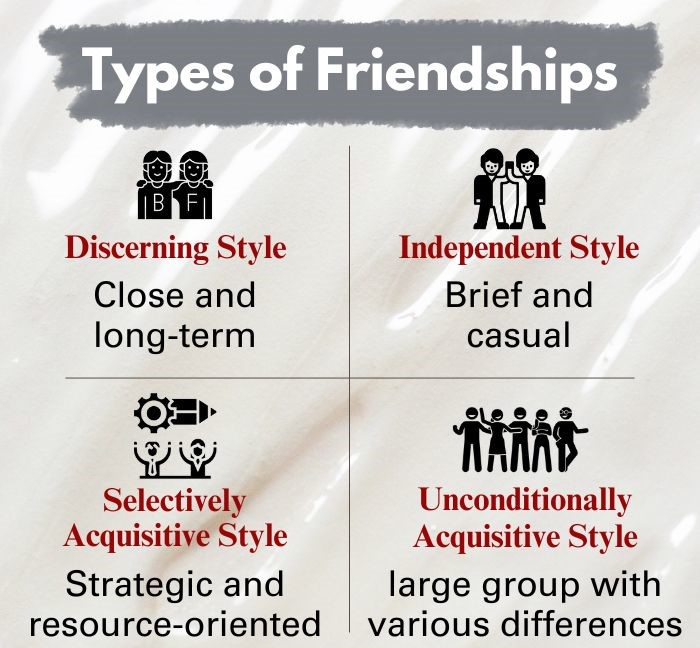
How Does Friendship Affect Mental Health?
Friends and mental health are intricately linked. Having friends [mfn] Narr, R. K., Allen, J. P., Tan, J. S., & Loeb, E. L. (2019). Close Friendship Strength and Broader Peer Group Desirability as Differential Predictors of Adult Mental Health. Child development, 90(1), 298–313. https://doi.org/10.1111/cdev.12905 [/mfn] provides emotional support, reducing stress and feelings of loneliness. Positive interactions with friends boost happiness and foster a sense of belonging, enhancing self-esteem. Moreover, friends offer diverse perspectives and healthy coping mechanisms, aiding in personal growth and emotional regulation.
However, sometimes the dynamics between friends and mental health can have negative consequences in the long run [mfn] Brent, L. J., Chang, S. W., Gariépy, J. F., & Platt, M. L. (2014). The neuroethology of friendship. Annals of the New York Academy of Sciences, 1316(1), 1–17. https://doi.org/10.1111/nyas.12315 [/mfn] . Toxic friendships may lead to stress and emotional turmoil. Peer pressure or negative influences from friends can impact mental well-being.
Friendship conflicts, betrayals, or rejections may cause emotional distress. Over-reliance on friends for support can hinder personal growth, and constant social comparison may lead to feelings of inadequacy.
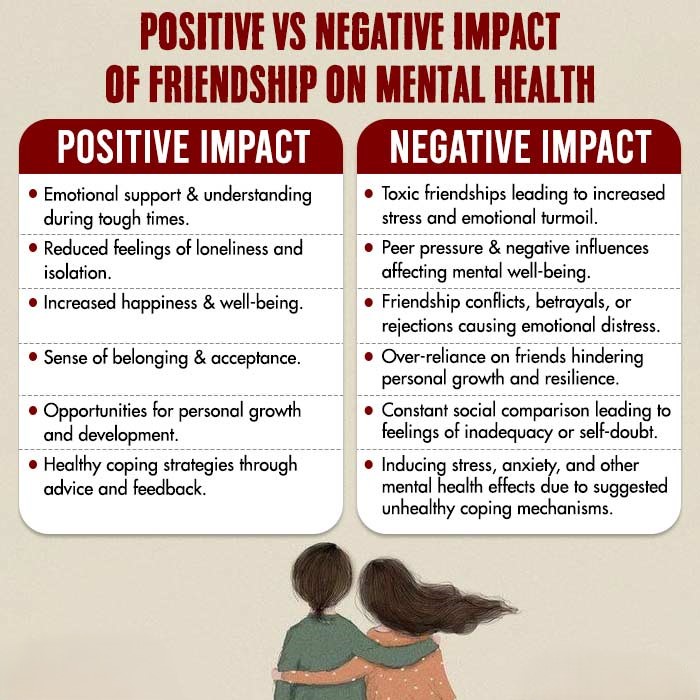
Impact Of Mental Illness On Friendship
The dynamics between friends and mental health determine how mental illnesses can significantly impact friendships [mfn] Samari, E., Teh, W. L., Roystonn, K., Devi, F., Cetty, L., Shahwan, S., & Subramaniam, M. (2022). Perceived mental illness stigma among family and friends of young people with depression and its role in help-seeking: a qualitative inquiry. BMC psychiatry, 22(1), 107. https://doi.org/10.1186/s12888-022-03754-0 [/mfn] . Depression may lead to social withdrawal and difficulty expressing emotions, causing reduced communication and conflicts.
Read More About Depression Here
Anxiety disorders may result in excessive worry and avoidance of social situations, isolating individuals from their friends. Bipolar disorder’s mood swings and impulsive behavior can strain relationships during manic episodes, while depressive episodes may lead to withdrawal.
Borderline personality disorder may create intense and unstable friendships due to fear of abandonment and emotional regulation difficulties. Schizophrenia can cause social withdrawal and communication challenges due to delusions or hallucinations.
The impact of mental illness on friendship can also be seen in people with eating disorders, who may limit social interactions and trigger trust issues among friends. Substance abuse disorders can lead to erratic behavior and trust issues, while PTSD may result in avoidance of friends and difficulty discussing traumatic experiences.
How To Be A Good Friend
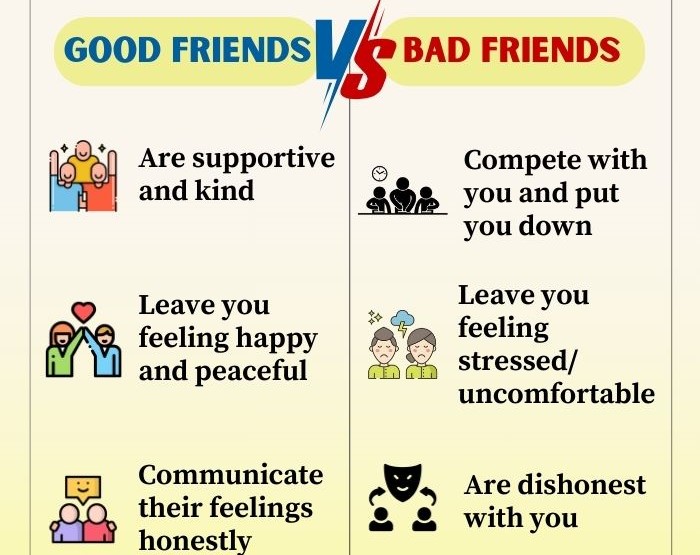
The importance of having good friends in life is reflected in both our personal and professional growth and commitment. But, as academic research and real-life experiences show, it is not always easy to be a good friend.
Consider the following ways [mfn] Pezirkianidis, C., Galanaki, E., Raftopoulou, G., Moraitou, D., & Stalikas, A. (2023). Adult friendship and wellbeing: A systematic review with practical implications. Frontiers in psychology, 14, 1059057. https://doi.org/10.3389/fpsyg.2023.1059057 [/mfn] to balance your personal boundaries, friendship, and mental health:
- Listen Actively: Be attentive and understanding when your friend talks, offering support and empathy.
- Be Reliable: Be there for your friend in good and bad times, showing that you can be trusted.
- Respect Boundaries: Respect their personal space and boundaries, being considerate of their needs.
- Communicate Honestly: Be open and honest in your communication, expressing your feelings with kindness.
- Offer Support: Offer help and encouragement when needed, showing that you care about their well-being.
- Celebrate Successes: Be happy for their achievements and celebrate their successes with them.
- Be Non-Judgmental: Avoid being judgmental and accept them for who they are, without criticism.
- Stay Loyal: Remain loyal and stand by your friend, even during challenging times.
- Forgive and Apologize: Be willing to forgive and apologize when necessary, promoting a healthy and compassionate friendship.
- Be Understanding: Understand that everyone has their struggles and be patient and supportive.
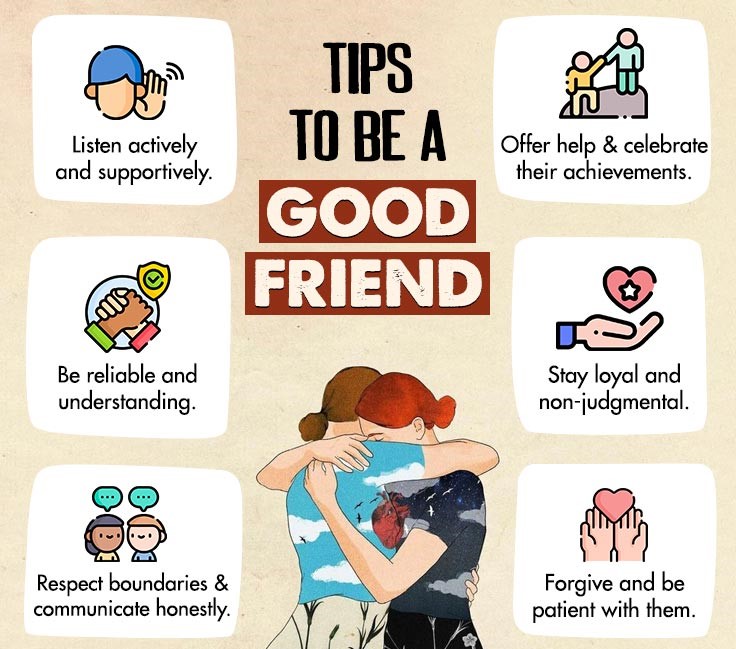
How To Help A Friend With Mental Illness
Being a friend to someone with mental illness can be challenging due to the complexity of their condition, communication barriers, and changing needs. Dealing with stigma, emotional toll, and setting boundaries adds to the complexities, but offering empathetic support positively impacts their well-being and recovery.
Consider the following measures [mfn] Manchanda, T., Stein, A., & Fazel, M. (2023). Investigating the Role of Friendship Interventions on the Mental Health Outcomes of Adolescents: A Scoping Review of Range and a Systematic Review of Effectiveness. International journal of environmental research and public health, 20(3), 2160. https://doi.org/10.3390/ijerph20032160 [/mfn] on how to help a friend with mental illness:
- Educate Yourself: Learn about their specific mental illness to understand their experiences better.
- Offer Support: Be there to listen and offer emotional support without judgment.
- Encourage Professional Help: Suggest seeking professional assistance, such as therapy or counseling.
- Respect Boundaries: Be mindful of their comfort level and avoid pressuring them to share more than they are comfortable with.
- Stay Connected: Continue to maintain regular communication and be caring to them.
- Help with Daily Tasks: Offer practical assistance with daily activities when needed.
- Be Patient: Understand that recovery takes time, and be patient with their progress.
- Avoid Stigmatizing Language: Use language that is sensitive and free from stigmas associated with mental health conditions.
- Check-In Regularly: Regularly check in on their well-being and let them know you are there for them.
- Encourage Self-Care: Support and encourage healthy self-care practices.
Takeaway
Friendship offers various psychological benefits, because of which there is an undeniable link between our friends and mental health. However, sometimes, maintaining friendships and being a good friend can be challenging.
By being attentive, offering support, and encouraging self-care, friends can positively impact each other’s mental health and strengthen their bonds. Building and nurturing healthy friendships contributes significantly to overall happiness and resilience, highlighting the importance of cultivating meaningful connections in our lives.
At A Glance
- Friends play a crucial role in mental well-being by providing emotional support, reducing stress, and boosting mood.
- The importance of having good friends lies in reduced mental health risks and enhanced resilience.
- However, maintaining friendships and being a good friend can be challenging, especially when supporting someone with mental illness.
- By being understanding, offering support, and encouraging self-care, friends can positively impact each other’s mental health.
- Building and nurturing healthy friendships are essential for overall happiness and resilience.
Frequently Asked Questions (FAQs)
1. What will I do if my friend isolates me because of my mental health issue?
If your friend isolates you because of your mental health issue, consider discussing your feelings with them openly and honestly, seeking understanding and support.
2. What to do if I do not have any friends?
If you do not have any friends, try joining clubs, groups, or activities that align with your interests to meet like-minded individuals and build new friendships.
3. How can I repair a broken friendship?
To repair a broken friendship, initiate a sincere conversation with your friend, acknowledge any mistakes made, apologize if necessary, and work together on rebuilding trust and companionship.

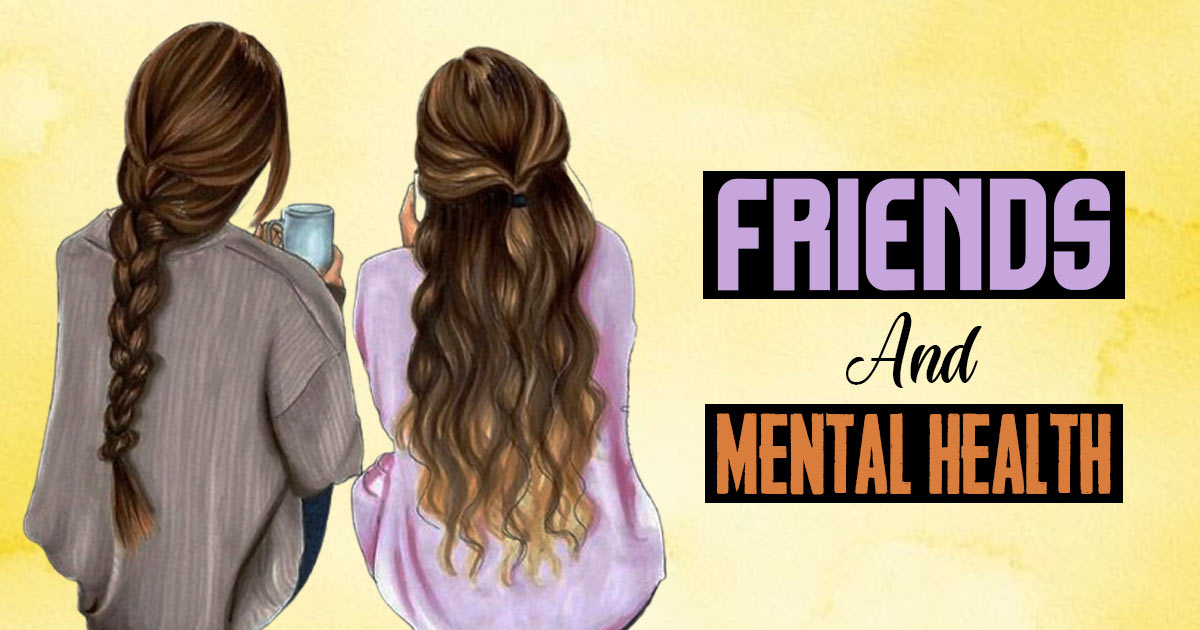
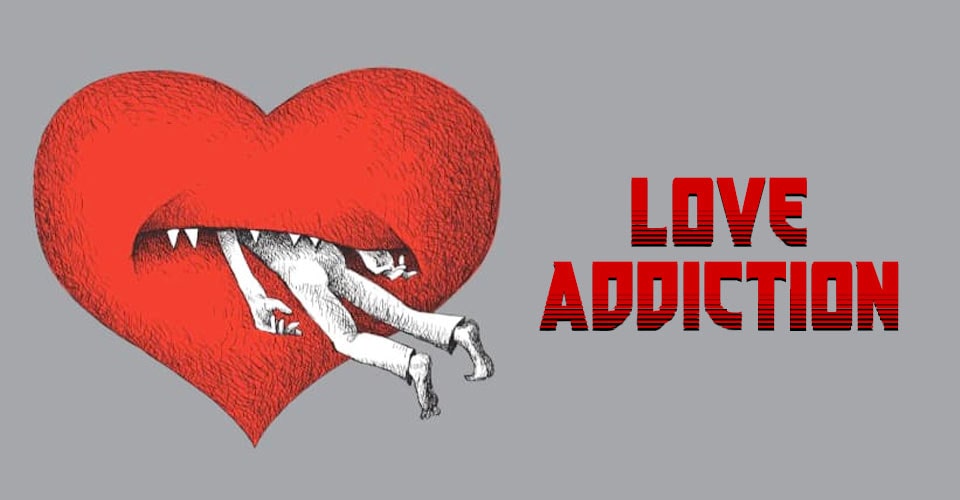
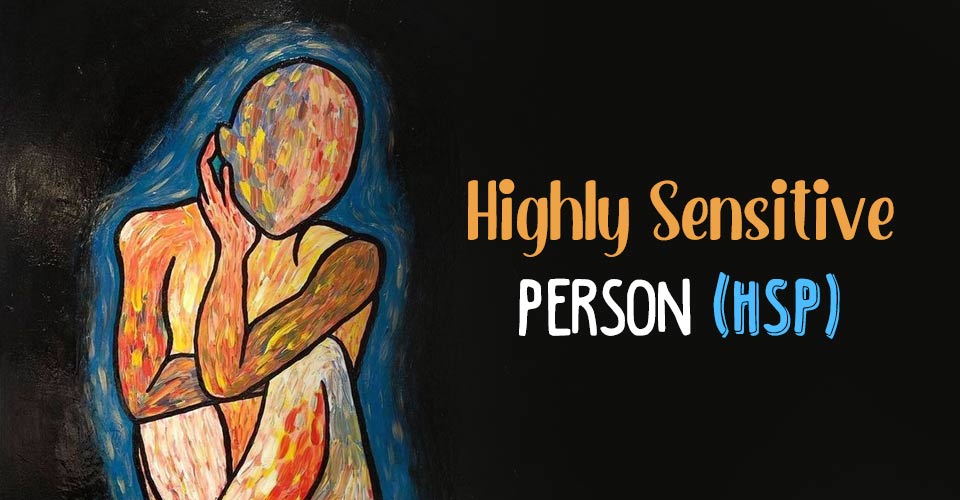

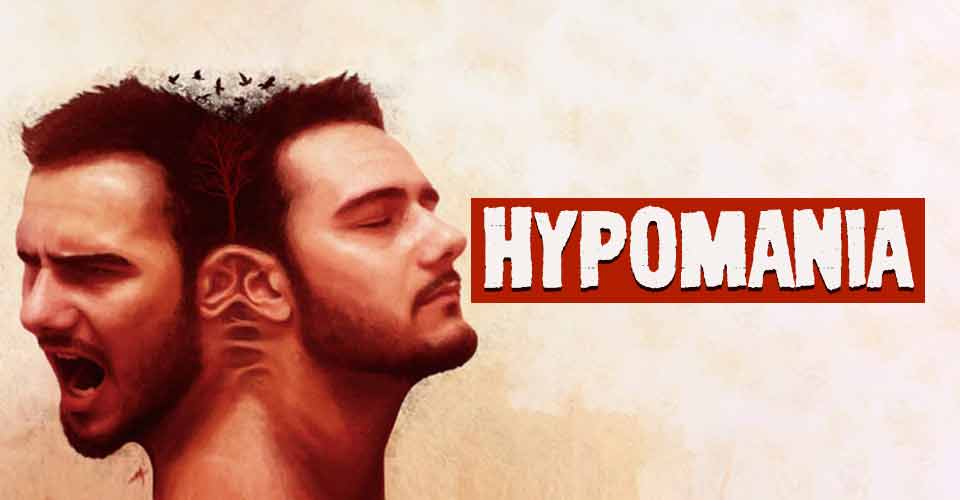



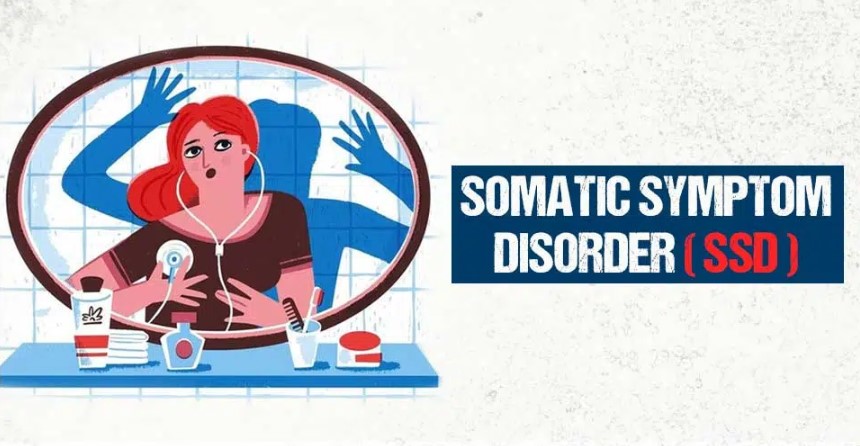

Leave a Reply